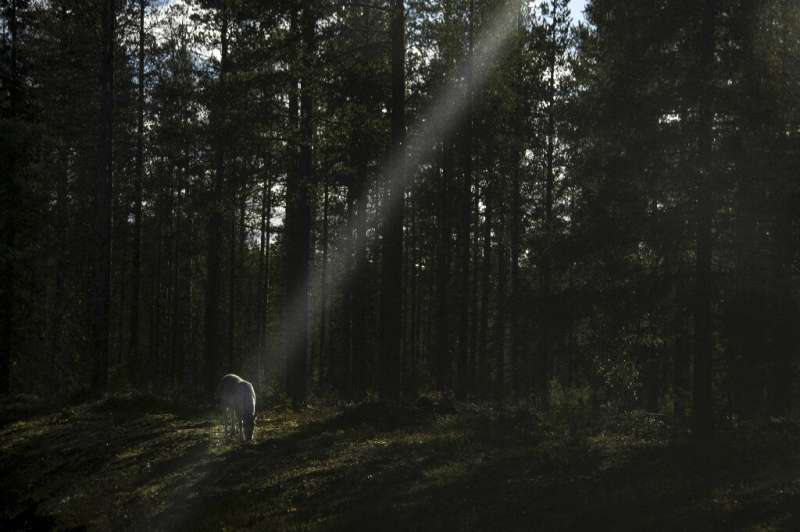
Rapidly warming conditions in the Arctic, coupled with the loss of sea ice caused by climate change, are leading to a significant decline in biodiversity. This decline is affecting plants, fungi, and lichen. However, a new study published in Science on Thursday reveals that caribou and muskoxen play a crucial role in reducing the rate of biodiversity loss by approximately 50%. This finding suggests that these large herbivores have an unrecognized function as defenders against climate change in the ecosystem.
Co-author Christian John from the University of California, Santa Barbara, explained that the study’s results indicate the potential effectiveness of “rewilding” through the reintroduction of large herbivores to combat the negative effects of climate change on tundra diversity.
The 15-year-long experiment, which began in 2002 near Kangerlussuaq in western Greenland, involved an international team of scientists. They used steel fencing to create 800-square-meter plots to either include or exclude herbivores and measure the impact on the surrounding environment. Additionally, they utilized “passive warming chambers” to simulate warmer conditions and assess biodiversity under such circumstances. Herbivores were given access to some warmed plots but not others.
Every day, the scientists traversed miles to observe and record the presence of the herbivores.

Christian John stated, “There were various challenges, including long hours of hiking across uneven terrain, living in a tent under a sun that doesn’t set, all while dealing with the constant whine of mosquitoes. However, none of these challenges overshadowed the joy of witnessing the first caribou calf of the year.”
Throughout the study period, tundra community diversity experienced a decline due to warming temperatures, changing precipitation patterns, increased shrub cover, and the associated melting ice. However, John noted that tundra community diversity decreased at nearly twice the rate in plots where herbivores were excluded compared to plots where herbivores grazed. In the warmed plots, the decline in diversity was even more significant, with exclusion leading to a decline of approximately 0.85 species per decade, whereas grazing resulted in a decline of only about 0.33 species per decade.
The scientists attributed this phenomenon to the herbivores’ regulation of species such as shrubs, dwarf birch, and gray willow, which allowed other plants to thrive.
The study concludes that efforts focused on maintaining or enhancing the diversity of large herbivores could potentially mitigate the impact of climate change on tundra diversity, emphasizing their importance in preserving ecosystem health and function.
More information:
Eric Post et al, Large herbivore diversity slows sea ice–associated decline in arctic tundra diversity, Science (2023). DOI: 10.1126/science.add2679
© 2023 AFP
Citation:
As Arctic warms, caribou and muskoxen slow biodiversity loss (2023, June 22)
retrieved 22 June 2023
from https://phys.org/news/2023-06-arctic-caribou-muskoxen-biodiversity-loss.html
This document is subject to copyright. Apart from any fair dealing for the purpose of private study or research, no
part may be reproduced without the written permission. The content is provided for information purposes only.
Denial of responsibility! SamacharCentrl is an automatic aggregator of Global media. In each content, the hyperlink to the primary source is specified. All trademarks belong to their rightful owners, and all materials to their authors. For any complaint, please reach us at – [email protected]. We will take necessary action within 24 hours.

Shambhu Kumar is a science communicator, making complex scientific topics accessible to all. His articles explore breakthroughs in various scientific disciplines, from space exploration to cutting-edge research.

